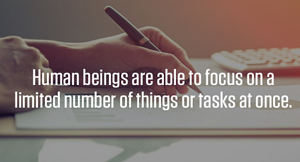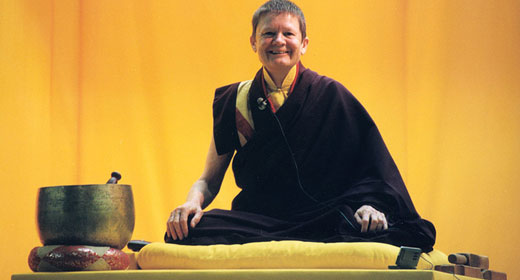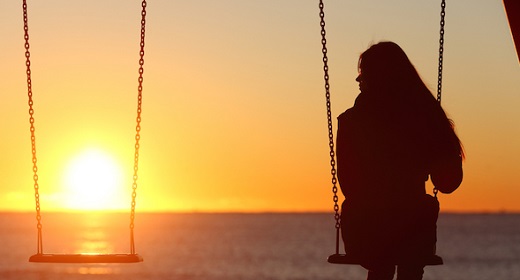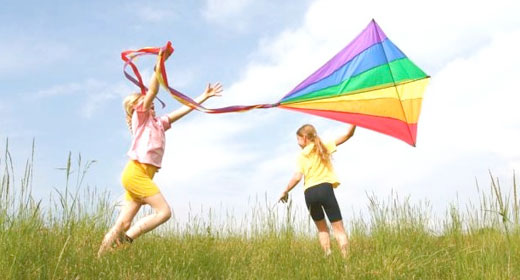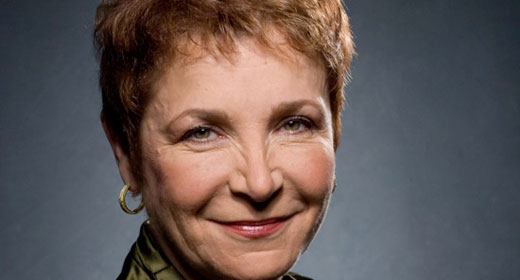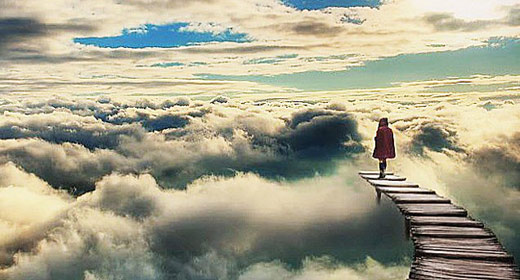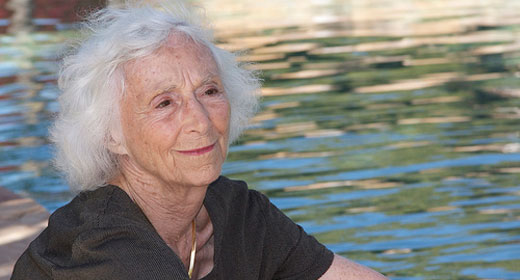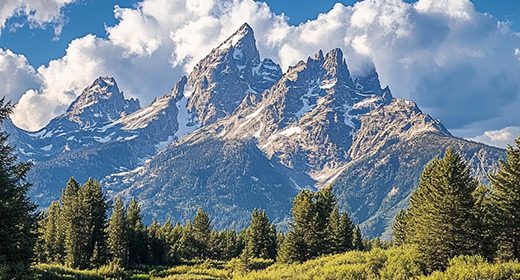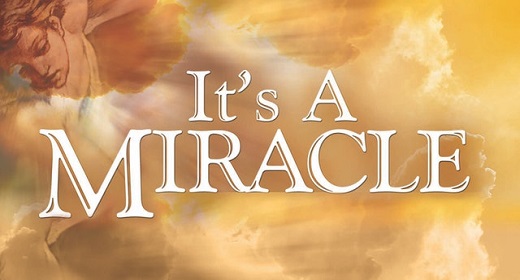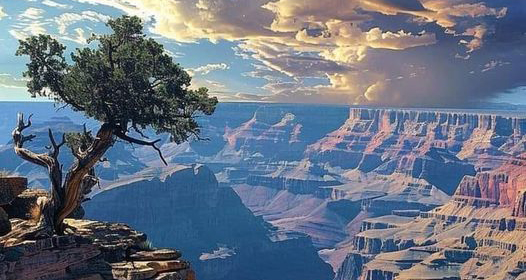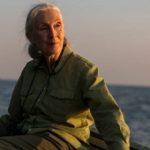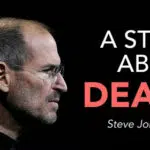by Carter Phipss: This is an excerpt from my book, Evolutionaries, published in 2012…
Barbara died last night, and in honor of her life and work, I wanted to put this on my blog—the story of a pioneering woman and a remarkable life.
The term “conscious evolution” conveys a great deal of meaning in its simple formulation. The basic idea is straightforward: now that we have become aware of the evolutionary process, conscious of this vast context that has produced human agents with at least some measure of free will, our choices matter a great deal. Today we can choose to direct our own destiny. No longer must we unconsciously stumble through this event called human life with little sense of whence we came, clinging with closed eyes to ancient myths or outdated worldviews, staggering from crisis to crisis, reacting as best we can to the news of the day. Finally, after billions of years, evolution achieved a remarkable breakthrough. It created a being that has the capacity to understand what’s happening! Even then, it took many thousands of years for that species to start to grasp the nature of the process it is a part of. But little by little we have opened our eyes and started to glimpse the enormity of the picture. We should not underestimate the import of our moment in this history. After eons of blind, unconscious evolution, a creature exists who can decide to consciously evolve.
Barbara Marx Hubbard has done perhaps more than any single Evolutionary to spread the idea of conscious evolution far and wide. It is a commitment she embraces with a deep, almost maternal care for the fate and potential of our species. She has been instrumental in introducing the whole idea of futurism to our culture. Buckminster Fuller noted as much, once calling her the “best informed human now alive regarding futurism.” And now in her eighties, she has lived her philosophy to the hilt, never resting upon her considerable achievements, even as she has watched the culture over the last de- cade begin to catch up to her prescient visions.
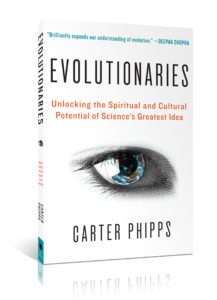
Unlike most of the Evolutionaries in this book, Hubbard is not a boomer. She came of age in the years when most boomers were still enjoying Gerber baby food and learning to crawl. Born Barbara Marx in New York City in 1929, she was raised in a wealthy Fifth Avenue family. Her father was a self-made entrepreneur who propelled himself up from nothing, truly living the American Dream. Her parents were Jewish, but her father was an agnostic, so Judaism was never an identity of the family. Whenever she would ask her father what religion they were, Hubbard recalls, he would tell her, “You’re an American. Do your best.” He passionately believed in the possibilities of the modern world.
A turning point in Hubbard’s life, as in the lives of many of her contemporaries, was the end of World War II and the bombing of Hiroshima and Nagasaki. What was all of this power for? she wondered. She had never believed in religion, but now the religion of the modern world—progress through technology—was called into question, and she was thrown into her first existential crisis.
Within a few years, she was at Bryn Mawr College, still trying to find new meaning, “trying to be an existentialist,” as she puts it. She loved to read philosophy but struggled to find a philosophical home among the popular icons of the time. She read Nietzsche, but the idea of the Superman had been thoroughly corrupted and warped by the Nazis. Karl Marx, as she told me, may have seen an important truth—a society built on the principle “from each according to his ability, to each according to his need”—but that had been turned into totalitarianism. Science had its own brand of pessimism, with Bertrand Russell declaring that the heat death of the universe was unavoidable and that to believe anything else was idiotic. Even a brief flirtation with existentialism provided no lasting satisfaction. Perhaps it was because she had retained some deep kernel of her father’s optimism, or maybe it was because she could brook no philosophical advance that seemed so much like a retreat, but she struggled mightily with the idea that there is no true meaning to the universe except that which she gave it—a disturbing notion that simply could not take root in the not yet fully formed structures of her young mind.
She even flirted briefly with Christianity but could not reconcile herself to the idea that Eve’s guilt had caused the fall from grace. Thrown back on herself once again, this philosophically inclined daughter of America decided to seek wisdom where all budding existentialists go: Paris. And so, during her junior year, Barbara Marx boarded a plane for the city of Sartre and Camus, hoping to find meaning on the banks of the Seine.
One day, while hanging out in a café in Paris, she struck up a conversation with an artist, a man by the name of Earl Hubbard. She asked him the questions she had been asking everyone, the questions inspired by Hiroshima: “What do you think is the meaning of our new power that is good, and what do you think is your purpose?” This young man had an immediate answer: “I’m seeking a new image of man commensurate with our power to shape the future. When a culture loses its story, loses its self-image, it loses its greatness. The artist has to find a new story and until it is expressed by artists, we won’t be able to bring our culture to fruition.” Her only response was a small voice in her mind that said, “I’m going to marry him.”
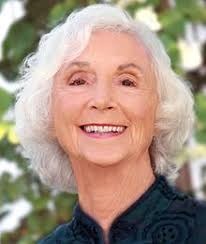 Flash-forward one decade to 1960, and Barbara and Earl Hubbard are married and living in Lakeville, Connecticut. Despite their bohemian beginnings in Paris, they embraced a relatively conventional lifestyle. She had five children and her inheritance supported his work and their life. But Hubbard was dying inside. She loved her children deeply, but there was something more, something deeper for her to give. Her passion for finding that “new story”—the answer to the questions that had plagued her since her teen years—was temporarily suppressed. Caught between her acceptance of the gender norms of the 1950s and the passions of her inner life, she felt like she was “turning to stone.” But help was coming. The atmosphere of the 1960s was beginning to shift and Hubbard’s intellectual antennae were on the lookout for anything and everything new that she could get her hands on. The first thing that triggered her curiosity was Abraham Maslow. When she read Maslow’s theory of self-actualization, she had a key insight, one that framed her own depression in a completely fresh way. “I’m not neurotic,” she remembers realizing, “I’m underdeveloped. I don’t know what my vocation is.” The difference was important; it gave a positive context, an evolutionary context, to her struggles and encouraged her to keep searching.
Flash-forward one decade to 1960, and Barbara and Earl Hubbard are married and living in Lakeville, Connecticut. Despite their bohemian beginnings in Paris, they embraced a relatively conventional lifestyle. She had five children and her inheritance supported his work and their life. But Hubbard was dying inside. She loved her children deeply, but there was something more, something deeper for her to give. Her passion for finding that “new story”—the answer to the questions that had plagued her since her teen years—was temporarily suppressed. Caught between her acceptance of the gender norms of the 1950s and the passions of her inner life, she felt like she was “turning to stone.” But help was coming. The atmosphere of the 1960s was beginning to shift and Hubbard’s intellectual antennae were on the lookout for anything and everything new that she could get her hands on. The first thing that triggered her curiosity was Abraham Maslow. When she read Maslow’s theory of self-actualization, she had a key insight, one that framed her own depression in a completely fresh way. “I’m not neurotic,” she remembers realizing, “I’m underdeveloped. I don’t know what my vocation is.” The difference was important; it gave a positive context, an evolutionary context, to her struggles and encouraged her to keep searching.
The next person to show up on Hubbard’s radar was, as for so many Evolutionaries, Teilhard de Chardin, and his masterpiece, The Phenomenon of Man. Only recently allowed to be published, his ideas were unconventional—and all the more so for a Connecticut housewife. I like to picture one of the wives in the popular TV show Mad Men sitting down in her suburban living room after tucking the kids into bed, putting aside Betty Crocker and picking up Teilhard—it brings home how ahead of her time Hubbard was. And Teilhard’s writings struck her like a lightning bolt. She found in him a kindred spirit, and a deep confirmation of her own intuition that something important was coming in our future, some new way of interpreting the human experience. “I realized in reading Teilhard that the drive inside me for greater expression, greater connectivity, and greater consciousness was the universe expressing itself as a person. Instead of being a neurotic housewife, I could see myself as an expression of a universal evolutionary process, which every single person is.”
After Teilhard came Aurobindo. Then Buckminster Fuller. Soon Father Thomas Merton and Jonas Salk, and on and on and on. She was beginning to wake up to a new sense of the world and a new sense of herself. The outer conventionality of her Connecticut life was giving way to an inner evolutionary drive. Publishing the first evolutionary newsletter, she slowly became connected to a network of like-minded souls who had struggled with the same questions and were sensing the same need for new answers. But despite this newfound excitement, she was still just a woman in a house in Connecticut with five children, living these new visions vicariously while playing second fiddle to her husband. The illusion, however, was slowly cracking. The feminine mystique was giving way. It would take one more push for her to jump out of the nest and truly fly as a powerful evolutionary in her own right. And that push would come in the form of an evolutionary epiphany.
Anyone who has ever lived in New England knows just how cold it can get in the heart of February, when winter seems interminable, summer can barely be evoked as a memory, and the prolonged chill starts to seep in around the visceral edges of consciousness. It was amid the austere cold of the Berkshire Mountains, not far from Hubbard’s home, that Herman Melville once placed his stamp on the nascent American form of literature, recalling in his remarkable prose the tropical sea journeys of his youth even as the snow swirled around his house. It was this same wintery bleakness tinged with beauty that inspired Edith Wharton to settle down only a few miles from where Melville once toiled and describe in her sweeping novels the emerging politics and class problems of a rapidly industrializing America. And it was against a similar backdrop, one bitter winter afternoon in 1966 that Hubbard, a child of a now mature American power, would find the answer to her need for a new story, a new metaphor to contextualize the mushroom cloud that had awakened her conscience and shaped her life.
On that particular day, Hubbard had been reading Reinhold Niebuhr, another one-time resident of the Berkshires (though only in the more hospitable summers), and was struck by a line he had quoted from Saint Paul: “All men are members of one body.” She recalls the events that followed:
Unexpectedly, a question burst forth from the depth of my being. . . . Lifting my voice to the ice white sky, I demanded to know: “What is our story? What in our age is comparable to the birth of Christ?”
I lapsed into a day-dream state, walking without thinking around the top of the hill. Suddenly, my mind’s eye penetrated the blue cocoon of earth and lifted me up into the utter blackness of outer space. A Technicolor movie turned on. I felt the earth as a living organism, heaving for breath, struggling to coordinate itself as one body. It was alive! I became a cell in that body.
Hubbard goes on to describe in great detail how this “movie” revealed to her the fundamental unity of humankind. “We are being born,” she realized. “Our story is a birth of a universal humanity!”
I felt myself tumbling through an evolutionary spiral. . . . The creation of the universe, the earth, single-cell life, multi-cellular life, human life, and now us, going around the spiral once again. It all raced before my inner eyes. . . . Then, as suddenly as it had begun, the Technicolor movie of creation stopped. I found my- self upon the frosty hill in Lakeville, Connecticut, alone. There was no sign of what had happened. Yet I knew it had been real. The experience was imprinted forever upon my very cells.
I had found my vocation. I was more than an advocate, I was a story teller! . . . My personal purpose was revealed to me as a vital function in the life of the planet as a whole.
More than four decades later, Hubbard’s conviction in her personal purpose has only increased. She has parlayed that solitary revelation into an impressive body of work, and an even more impressive life. From the seed of the new story she had finally found, she cultivated a vision that has become her life’s work: the vision of conscious evolution. Its essential task, she writes, is “to learn how to be responsible for the ethical guidance of our evolution. It is a quest to understand the processes of developmental change, to identify inherent values for the purpose of learning how to cooperate with these processes toward chosen and positive futures, both near term and long range.”
“Conscious evolution” is a term that can be used in many different ways, but Hubbard captures the broad strokes of its meaning in what she calls “the three C’s:”—new cosmology, new crises, and new capacities. Our new cosmology is the story that science has revealed about where our universe came from, about the extraordinary process of which we are a part. It is important, Hubbard writes, because it gives us “a new sense of identity, not as isolated individuals in a meaningless universe but rather as the universe in person” Our new crises, she explains, are those potentially catastrophic global issues we face, such as climate change. In light of evolution’s trajectory, these are reframed as a “natural but dangerous stage in the birth process” of our next evolutionary stage. Hubbard points out that there have always been crises as part of the process—mass extinctions, ice ages, and so on—but never before have we had advance warning of our pending self-destruction and therefore had the opportunity to do something about it. We are shifting, she writes, from “reactive response to proactive choice.”
The third piece in Hubbard’s triad, new capacities, are recently developed powers such as biotechnology, nuclear power, nanotechnology, cybernetics, artificial intelligence, and artificial life. She acknowledges that in our current state of “self-centered consciousness” these are potentially hazardous, and yet, she suggests, they may be exactly what we need for the next phase of our evolution. She cautions against acting out of fear and prematurely destroying these new technologies. The task of conscious evolution is rather to “guide their capacities toward the emancipation of our evolutionary potential.”
Hubbard is a visionary, but she has never hesitated to make her visions practical. In the decades that have elapsed between that epiphany in Connecticut and the writing of this book, Hubbard has journeyed down several lifetimes’ worth of roads less traveled. She participated in and supported many of the transformations of the 1960s and ’70s but never bought into the reactionary side of the countercultural movement, or its pessimistic tendencies. She has been a consistent advocate for the positive potential of a shared future, even amid the vigorous rejections of those who saw limits and ceilings where she saw open sky and new promise. She helped to create the Foundation for the Future, was a cofounder of the World Future Society, and started the Foundation for Conscious Evolution, bringing the perspective of an evolutionary futurism to a culture in need of new storytellers. And through a multitude of conferences, thought-leader dialogues, political engagements, films, books, citizen diplomacy, educational seminars, and even a nomination for vice president, Hubbard has started a thousand small fires—in the hope that some would burn out of control. A few did. Once it was an ordeal just to connect with a like-minded soul; now she encounters them all across the country. And since that day in 1966, her conviction has never wavered. She has raised the banner of conscious evolution for half a century, even when it was only seen by a handful of children in a living room in the Berkshires.

